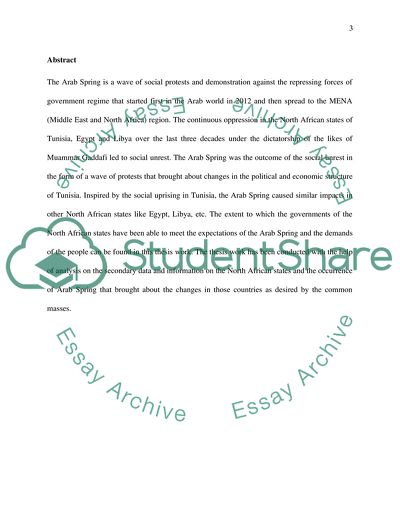Cite this document
(“Has the Arab Spring met the popular demands in North Africa A Case Thesis Proposal”, n.d.)
Has the Arab Spring met the popular demands in North Africa A Case Thesis Proposal. Retrieved from https://studentshare.org/miscellaneous/1623090-has-the-arab-spring-met-the-popular-demands-in-north-africa-a-case-study-as-tunisia-negotiates-an-inclusive-governance
Has the Arab Spring met the popular demands in North Africa A Case Thesis Proposal. Retrieved from https://studentshare.org/miscellaneous/1623090-has-the-arab-spring-met-the-popular-demands-in-north-africa-a-case-study-as-tunisia-negotiates-an-inclusive-governance
(Has the Arab Spring Met the Popular Demands in North Africa A Case Thesis Proposal)
Has the Arab Spring Met the Popular Demands in North Africa A Case Thesis Proposal. https://studentshare.org/miscellaneous/1623090-has-the-arab-spring-met-the-popular-demands-in-north-africa-a-case-study-as-tunisia-negotiates-an-inclusive-governance.
Has the Arab Spring Met the Popular Demands in North Africa A Case Thesis Proposal. https://studentshare.org/miscellaneous/1623090-has-the-arab-spring-met-the-popular-demands-in-north-africa-a-case-study-as-tunisia-negotiates-an-inclusive-governance.
“Has the Arab Spring Met the Popular Demands in North Africa A Case Thesis Proposal”, n.d. https://studentshare.org/miscellaneous/1623090-has-the-arab-spring-met-the-popular-demands-in-north-africa-a-case-study-as-tunisia-negotiates-an-inclusive-governance.


